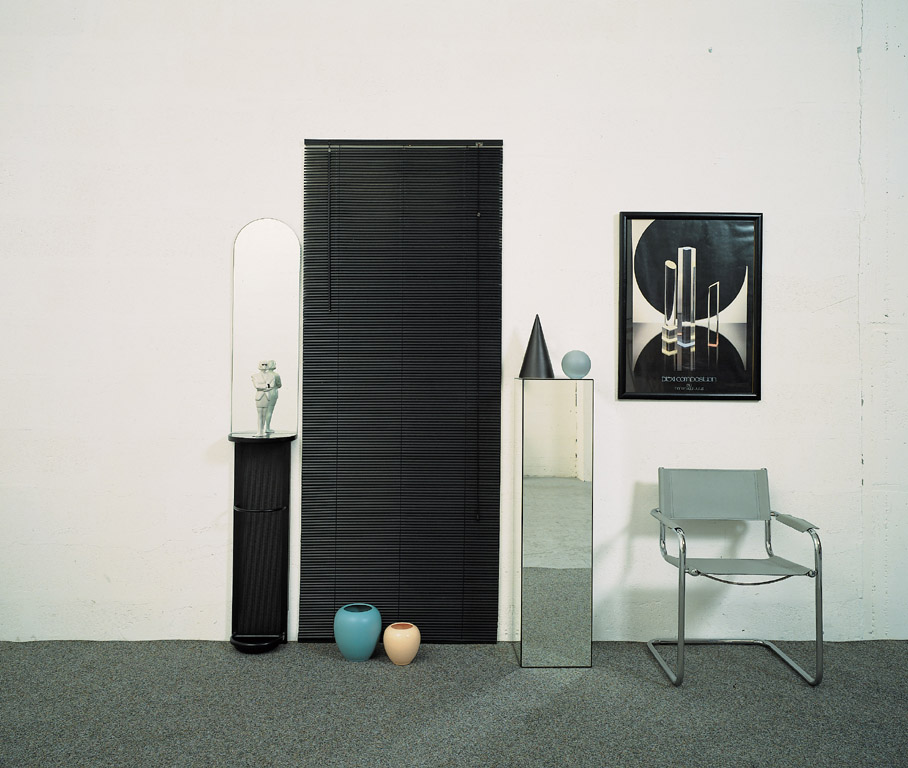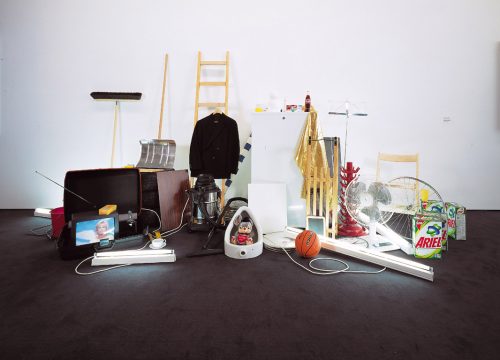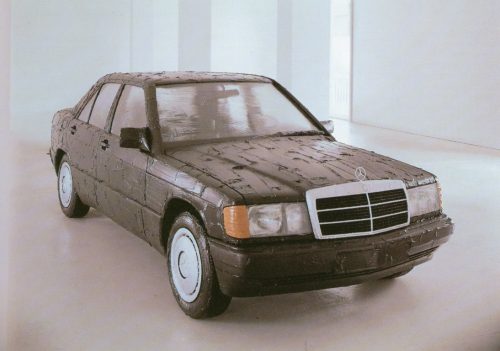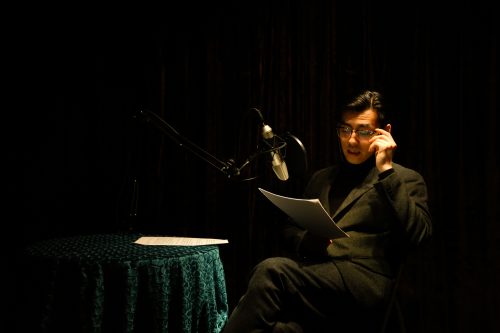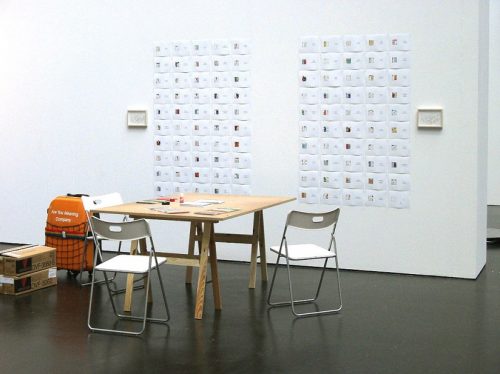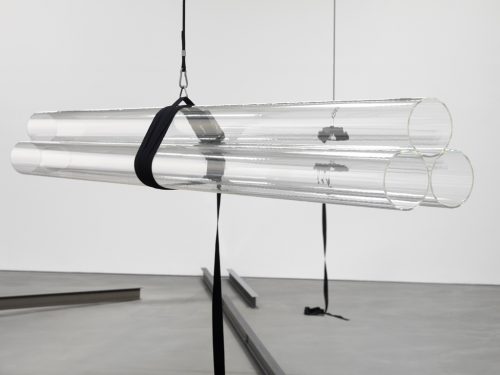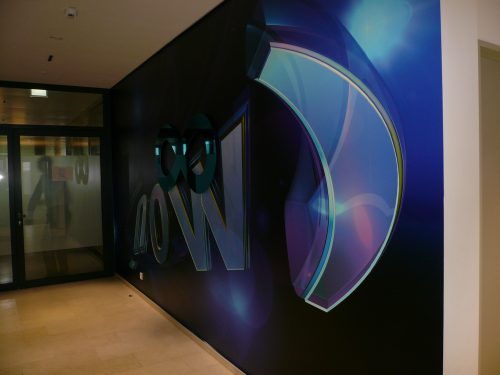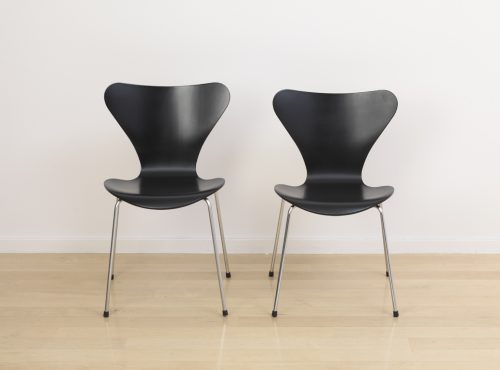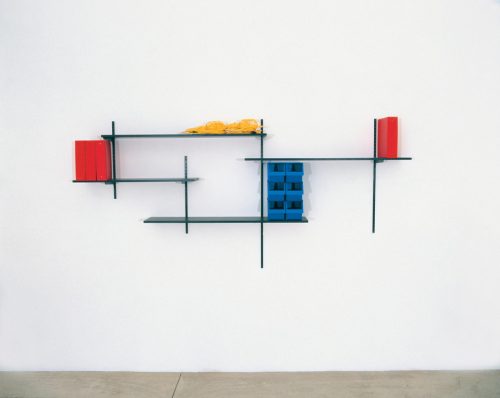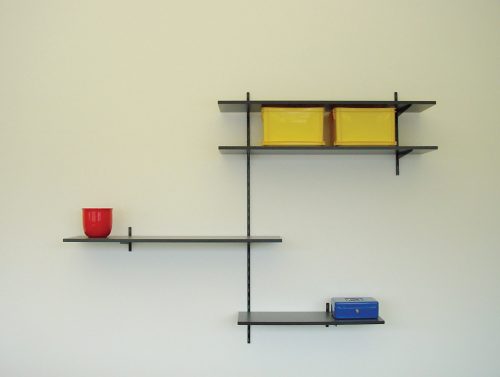Guillaume Bijl found a provocative way of stepping up Andy Warhol’s vigorously pursued eradication of the difference between artwork and commodity. Since the 1970s, Bijl has been transposing gyms and exchange offices from their everyday context to other locations. Bijl distinguishes between four different types of transposition: transformational and situational installations, the Compositions Trouvées and the so-called Sorry works. The former transform one reality into a reality existing in parallel and yet being completely independent, or stage fiction in reality. One example is the re-opening of a French supermarket, which had survived virtually unchanged for 30 years, in a gallery in Basel. This had been preceded by fictitious letters – attributed by Bijl to a Belgian authority – in which art was declared to be superfluous because of its non-functional character. Bijl himself describes his Compositions Trouvées as “contemporary, archaeological still-lives”. Their composition is based on found objects which are newly arranged as relics of an economic or taste-related dressing.
close
checkout*
Shopping cart
Versand und Abwicklung erfolgt über die Bücherbogen am Savignyplatz GmbH in Berlin. Für Fragen zu Bestellungen wenden Sie sich bitte direkt an info@buecherbogen.com
Handling and Shipping is done by theBücherbogen am Savignyplatz GmbH in Berlin. For questions regarding your order please contact info@buecherbogen.com directly.
*
Bestellungen aus der EU sind bei PayPal auch ohne Anmeldung möglich. Sie können dann auch bequem per Bankeinzug oder mit Ihrer Kreditkarte zahlen.
Für diese Option klicken Sie bitte auf PayPal und wählen anschließend die Bezahlung "Mit Lastschrift oder Kreditkarte" aus.
Buyers from within the EU can use PayPal even without having a PayPal account.
Via Paypal you can also check out with direct debit or with your credit card.
For this option please click on "Check out with PayPal" and make use of the "Payment by Direct Debit or Credit Card".
